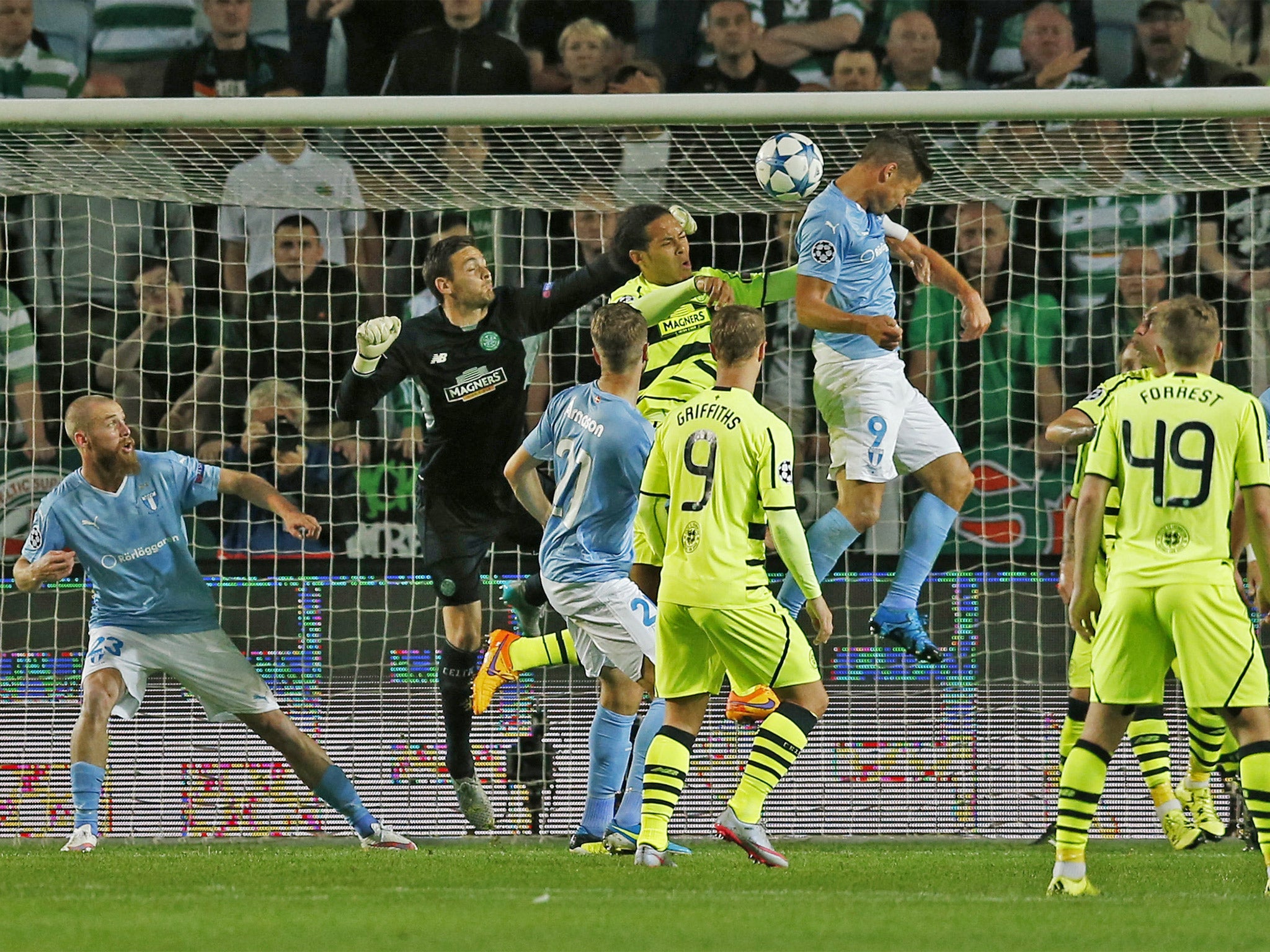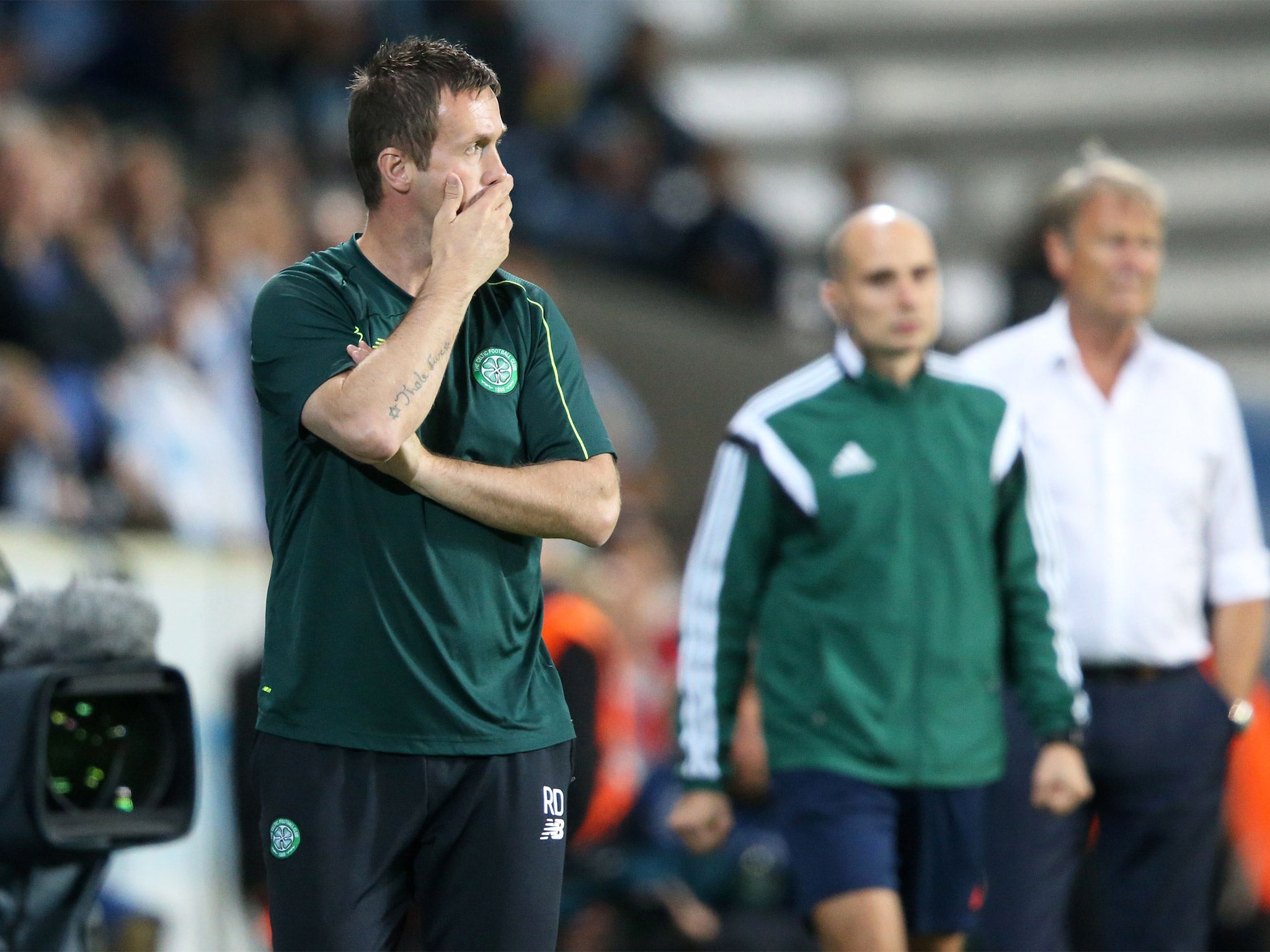Champions League failure will leave Celtic trapped in Glaswegian catch-22
Scottish game faces consequences of Swedish fright night

Your support helps us to tell the story
From reproductive rights to climate change to Big Tech, The Independent is on the ground when the story is developing. Whether it's investigating the financials of Elon Musk's pro-Trump PAC or producing our latest documentary, 'The A Word', which shines a light on the American women fighting for reproductive rights, we know how important it is to parse out the facts from the messaging.
At such a critical moment in US history, we need reporters on the ground. Your donation allows us to keep sending journalists to speak to both sides of the story.
The Independent is trusted by Americans across the entire political spectrum. And unlike many other quality news outlets, we choose not to lock Americans out of our reporting and analysis with paywalls. We believe quality journalism should be available to everyone, paid for by those who can afford it.
Your support makes all the difference.That Ronny Deila is an honest man is not open to doubt. His judgement on the abject manner in which his “scared” team – and this is unquestionably his team – gave up on the Champions League was brutal and all too true. But what is now in doubt in the wake of Celtic’s Swedish fright night is Deila’s ability as coach and manager.
“Judge me after a year,” suggested Deila when he arrived in Glasgow and managed to get Celtic knocked out of the Champions League twice last season. Take him at his word, and use his words, and the verdict is one of failure. Conceding three goals in two games from corners is not the sign of a well-coached side; twice letting a two-goal lead slip is not the sign of a side practised in game management. Celtic have been sloppy this season, conceding two goals in four of their last five games, and were careless in possession, in defence and in attack in Malmo.
“This is my responsibility,” said Deila post-match. So the Norwegian has become the main suspect in a Scandinavian Noir, with the battered corpse of Celtic’s Champions League hopes flown home from Sweden for its post-mortem. The manager is not the only guilty party. Scott Brown, captain of club and country, and his midfield partner Nir Bitton fell short. Behind them Virgil van Dijk and Dedryck Boyata did little to suggest they could keep Malmo out and further forward Stefan Johansen and Stuart Armstrong similarly struggled to impose themselves against modest opponents, the fifth best side in Sweden judged by the Allsvenskan table. Last weekend Malmo lost at Hacken, the second-best side in Gothenburg.
“At this level if you’re not quite at the races you get punished no matter what team you play,” said Kris Commons. The midfielder was the least self-critical of any of the downcast Celtic players who spoke afterwards, disagreeing with Brown’s bleak assertion that the team were “ashamed”.
Whatever Commons might think, this was a humbling night for Celtic and Scottish football. “To do what they have done at this level... I just can’t put it into words,” said Pat Bonner, the club’s legendary goalkeeper.
Celtic are comfortably the best side in Scotland, a club who like to imagine they belong in the Champions League; 60,000-plus packed into a pulsating Celtic Park, one of the must-sees of European football. It will remain in the imagination of the club and fans for a second successive year because they do not have a team good enough to get there, and for how many seasons beyond? This is a team who, at best, belong in the Europa League, a side who have failed to better Legia Warsaw, Maribor or Malmo over the past two seasons.
Celtic are caught in a Glaswegian catch-22; with no Champions League to dangle as bait, attracting players of sufficient quality becomes significantly more difficult. And without those quality players, getting back to the Champions League becomes increasingly more difficult. The gap between the £20m-plus for being in the Champions League and the £8m from the Europa League speaks for itself. It will be instructive to see how many turn up on Saturday for the visit of St Johnstone – another season of plodding domestic dominance is not designed to get bums on seats.
“First of all apologies to all [the supporters], especially the ones that travelled,” said Van Dijk in what is likely to be his farewell message. It was not the departure he would have envisaged. “It wasn’t a good performance from the whole team. It will be terrible if it ends like this.”
If, or rather when, Van Dijk heads south, it will leave Deila with a large hole in his defence. Van Dijk may have wobbled on Tuesday but is a good player, potentially a very good one. Boyata is a Deila recruit and does not look as able as his former Manchester City team-mate Jason Denayer, Van Dijk’s partner last season. Deila’s record in the transfer market is open to question: Nadir Ciftci has the look of another Stefan Scepovic.

Nevertheless, his job does not appear under immediate threat. In this century Celtic, under a chief executive in Peter Lawwell who is a realist, unlike many around the Old Firm, have not been swift to swing the axe. Tony Mowbray lasted less than a year but his side were struggling domestically and Deila’s is not – unlike Mowbray he does not have Rangers to worry about.
For all the schadenfreude in Aberdeen, Edinburgh and elsewhere, this was a dire outcome for the Scottish game. It would benefit Gordon Strachan’s cause to have the likes of Brown, Leigh Griffiths and Armstrong playing at the highest level in club football. Above all, though, for the greater good Scotland needs a team in the Champions League, needs someone to show this is not the footballing backwater that Tuesday night’s result suggests it is becoming.
Join our commenting forum
Join thought-provoking conversations, follow other Independent readers and see their replies
Comments